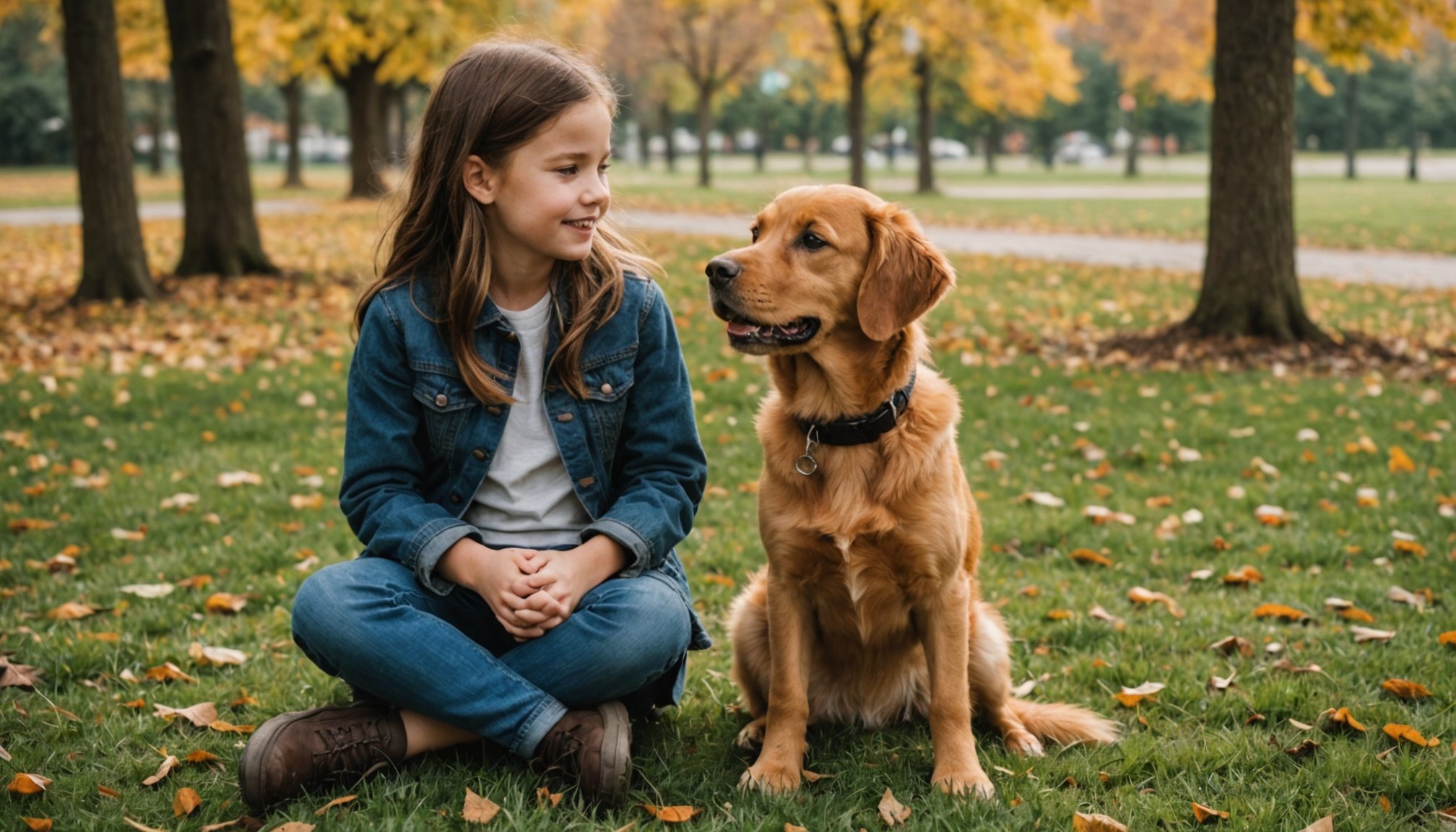Understanding Anxiety Disorders in Children
Childhood anxiety is a growing concern as it significantly impacts a child’s emotional well-being. Anxiety disorders in children are among the most common mental health issues they face. These disorders can manifest as generalized anxiety, separation anxiety, and social anxiety, all affecting children’s daily lives.
The psychological impact of anxiety can disrupt a child’s development, affecting their learning, social skills, and self-esteem. When left unchecked, anxiety disorders can lead to more severe mental health issues in adulthood. Early identification and intervention are crucial for promoting a child’s emotional well-being.
Also to discover : Transforming Lives: Effective Strategies to Enhance Well-Being for Chronic Illness Patients
Recognising signs of anxiety in children is essential for parents and educators. Symptoms may include excessive worry, fear, avoidance of certain situations, and physical manifestations like headaches or stomachaches. Being attentive to these signs helps in addressing and managing childhood anxiety effectively.
Understanding these dynamics can equip caregivers to better support children in navigating their anxiety. Encouraging open conversations about feelings and providing a supportive environment are vital steps. In doing so, children gain confidence, better manage anxiety disorders, and improve their overall emotional health.
Also read : Transform your core and relieve sciatica discomfort: discover the advantages of consistent pilates workouts
The Role of Pets in Emotional and Psychological Support
The human-animal bond is a powerful connection that enhances the emotional well-being of individuals, especially children. This bond plays a critical role in managing anxiety disorders in children. Pets, with their affectionate and understanding nature, are exceptional providers of emotional support and can help alleviate the symptoms of childhood anxiety.
Emotional support animals, such as dogs or cats, can help children cope with anxiety by providing constant companionship and a sense of security. The simple act of petting an animal can lower stress hormones and reduce feelings of nervousness. Furthermore, the human-animal bond encourages children to express their emotions openly and develop skills in empathy and emotional regulation.
Case studies across various settings demonstrate that pets have a significant positive impact on decreasing anxiety levels in children. For instance, children who interact regularly with pets show improved communication and social skills compared to those without pets.
By integrating animals into a child’s life, caregivers can create a supportive environment that bolsters a child’s self-esteem and fosters resilience. Thus, recognizing the benefits of pet ownership is an essential step in helping children manage their anxiety more effectively.
How Dogs Specifically Help Alleviate Anxiety
Dogs have a unique capacity to provide therapeutic benefits for children experiencing anxiety. Their lively presence encourages physical activities, which are integral to enhancing mental health. Regular exercise facilitated by canine companionship not only strengthens the body but also elevates mood and reduces stress. By incorporating a structured routine, children gain a sense of security and predictability, aiding in anxiety management.
Emotional Support and Companionship
Beyond physical benefits, dogs offer profound emotional support. Their unconditional love and attachment can significantly soothe anxious children. Petting, playing, and general interaction with dogs induce calming effects, helping to lower anxiety levels. This interaction creates a space where children feel heard and valued, thanks to dogs being non-judgmental companions.
Learning Responsibility and Empathy
Owning a dog teaches children important social lessons. Caring for a pet instills a sense of responsibility and develops empathy. These experiences provide opportunities to enhance social skills and foster emotional resilience. As children take on caregiving roles, they gain confidence, feeling empowered to manage their own emotions and anxiety, showcasing the multifaceted anxiety relief dogs can impart.
Research and Studies on Pets and Mental Health
Scientific studies on pets reveal compelling evidence regarding the connection between pet ownership and improved mental health. Experts highlight therapeutic effects of dogs in clinical settings, particularly emphasizing their ability to reduce anxiety. These studies have shown that interacting with dogs can lead to the release of endorphins, resulting in a calm and joyful mood.
In recent research on anxiety and pets, data indicates that children who engage with animals experience a decrease in cortisol levels, a hormone linked to stress. This effect is not just anecdotal; it is backed by significant statistical evidence underscoring the positive mental health outcomes associated with having a pet, particularly dogs.
Furthermore, schools and hospitals have incorporated therapy dogs into their programs, reinforcing studies that demonstrate a reduction in anxiety symptoms when children interact with these animals.
The ongoing exploration into the mental health benefits of pet dogs continues to provide valuable insights, making a strong case for integrating pet therapy into strategies for supporting children with anxiety disorders. Such findings validate the importance of further exploration into structured animal-assisted interventions.
Practical Advice for Introducing a Dog to Anxious Children
Introducing dogs to children with anxiety requires a thoughtful approach. Choosing the right breed is paramount; smaller, calmer dogs tend to acclimate better. When considering pet adoption tips, research on breeds known for gentle temperaments can be invaluable. Gradually introduce the child to the dog to avoid overwhelming them. This step-by-step method fosters a sense of safety and trust, crucial for both the child and pet.
Creating a supportive environment for pets involves establishing a quiet, comfortable space where the dog can retreat. This setup not only benefits the animal but also offers anxious children a shared sanctuary where they feel understood and secure. Initially supervised interactions bolster confidence and ensure positive experiences for the child.
Incorporating pet care responsibilities such as feeding or walking the dog can also help bolster a child’s confidence and independence. It’s important to maintain a consistent routine, providing structured stability that anxious children often need. By empowering them with manageable tasks, children develop attachment and strengthen the bond with their companion. Overall, a well-considered introduction strategy and supportive environment greatly enhance the successful integration of a pet into an anxious child’s life.
Supporting Children with Anxiety through Pet Ownership
Pet ownership can be an effective tool for supporting anxious children. By integrating pets into children’s lives, caregivers can create a nurturing environment that aids in anxiety relief. Animals offer unconditional love, providing a comforting presence that bolsters a child’s emotional resilience.
Adults play a crucial role in helping children manage anxiety with their pets. They can teach coping strategies through pet care activities, such as feeding, grooming, or walking. These tasks not only offer a sense of responsibility but also create opportunities for children to practise empathy and compassion.
Educational initiatives should include training children on how to handle anxiety alongside pet care, ensuring they develop essential skills for emotional management. This holistic approach encourages children to view pets as mental health tools, helping them build stable emotional foundations.
Moreover, it’s essential to seek professional guidance when integrating pets into therapeutic plans for children. Therapists and counsellors can provide customised advice tailored to the child’s specific needs, maximising the therapeutic benefits of pet ownership. Harnessing the power of pet ownership effectively fosters a healing environment conducive to emotional and psychological growth.











